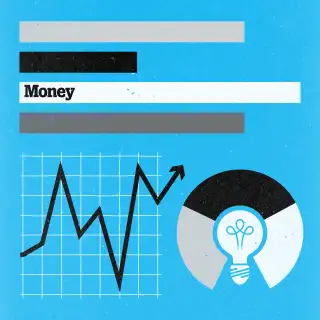When Investment Growth, Income, and Safety Are All Priorities

Q: I'm 64 and retired. My wife is 54 and still working, but I’m asking her to join me in retirement. We have about $1 million in savings, with about half in an IRA and the rest in CDs. How can try I try to preserve the principal, generate about $2,000 in monthly income until I collect Social Security at age 70, and somehow double my investment? — Rajen in Iowa
A: The first thing you need to ask yourself is what’s really more important: Growth, income, or safety? You say you want to preserve your principal – and your large cash position suggests that you are risk averse – but you also say you want to double your investment.
“Why do you need to double your investment?” asks Larry Rosenthal, a certified financial planner and president of Rosenthal Wealth Management Group in Manassas, VA. “Everybody likes the idea of doubling their investment, but there’s a high cost if it doesn't work out.”
Given that you’re already retired, doubling your investment is a tall order. You probably don’t have that kind of time. At a 5% annual return, it would take you more than 14 years, and that's without tapping your funds for income along the way. Nor can you afford to take on too much additional risk.
Either way, you do need to rethink how you have your assets allocated.
A 50% cash position is likely far too much, especially with interest rates as low as they are. “You’re effectively earning a negative return,” factoring in inflation, says Rosenthal.
And while cash is a great buffer for down markets, the value is lost in the extreme: The portion of your portfolio that is invested in longer-term assets such as stocks and bonds needs to do double duty to earn the same overall return.
If generating growth and income are both priorities, “look at shifting some of that cash into dividend paying stocks, a bond ladder, an annuity, or possibly a combination of the three,” says Rosenthal, who gives the critical caveat that the decision of how to invest some of this cash will depend on how your IRA money is invested.
Meanwhile, you should take a closer look at the pros and cons of claiming Social Security at full retirement age, which is 66 in your case, or waiting until you’re 70 years old.
The current conventional wisdom is to hold off taking Social Security as long as possible in order to maximize the monthly benefit. While that advice still holds true for many people, you need to look at the specifics of your situation – as well as that of your wife. The best way to know is to run the numbers, which you can do at Social Security Timing or AARP.
The tradeoff of waiting to claim your benefit, says Rosenthal, is spending down more of your savings for six years. You may in fact do better by keeping that money invested.
What’s more, “if you die, you can pass along your savings,” adds Rosenthal. But you don't have that type of flexibility with Social Security benefits.